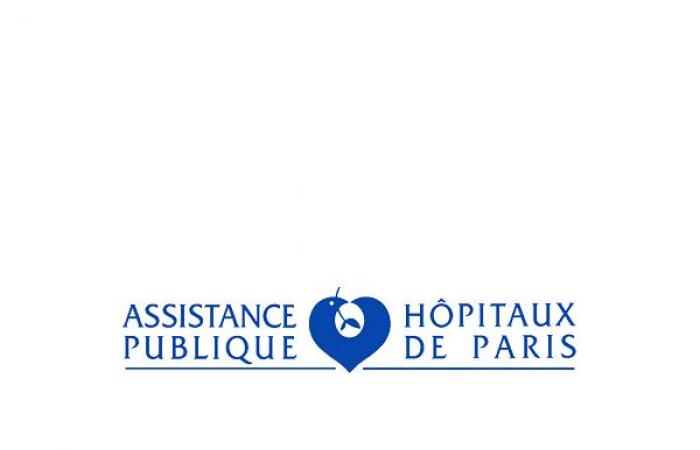
Sorbonne University and AP-HP inaugurate UMS-Autonomythe first research and innovation center in Île-de-France focused on people losing their autonomy. This is the first Mixed Service Unit associating these two organizations: a unique place, at the crossroads of the hospital, the city and the home, in a space open to public and private partners, allowing the development of synergies and collaborations in real-life conditions. The inauguration took place today at the Charles-Foix AP-HP hospital in the presence of Nathalie Drach-Temam, president of Sorbonne University, Valérie Pécresse, president of the Île-de-France region as well as Nicolas Revel, director general of the AP-HP. On the occasion of this event, three first research projects, selected as part of a call for expressions of interest supported by the Carnot@APHP Institute, were announced by Bruno Riou, dean of the faculty of health at Sorbonne University: DYSMOB-COPD, LBO-MOB, AGIR-AVC.
A research and innovation center dedicated to people losing their autonomy.
Today, in France, one in two people is directly or indirectly affected by the reduction or even loss of autonomy. Whether it is the consequence of a pathology, a disability or even age, this subject is not only a health issue but also a societal issue whose consequences are both human and economic. At the same time, a third of the technologies marketed to compensate for the reduction in autonomy linked to age, illness or disability are abandoned after 3 months following difficulties for health professionals and patients to identify their needs. real and test solutions in a secure and standardized manner.
Faced with this observation, Sorbonne University and the AP-HP carried out the mixed Autonomy service unit project, a winning project in the SESAME Filières – France 2030* call for projects, and recipient of regional funding of 6, €1M as part of the State-Region Plan Contract in Île-de-France. Its ambition is to encourage the carrying out of research and innovation project work on the themes of “aging better”, “moving better”, “breathing better”, “recovering better”.
UMS-Autonomie concentrates, on a single 1,600 m2 site, within the Charles-Foix – AP-HP hospital in Ivry-sur-Seine, cutting-edge skills and technologies, serving research in matters of autonomy and prevention of dependence.
The first Mixed Service Unit (UMS) between Sorbonne University and AP-HP.
By joining forces in this project, Sorbonne University, a world-class university, and the AP-HP, the first university hospital in Europe and a major player in clinical research, constitute a place of experimentation at the interface of medical and paramedical clinical research (physiotherapists, psychomotor therapists, occupational therapists, podiatrists, nurses), engineering research and research in the human and social sciences.
The UMS-Autonomy makes it possible to co-create, evaluate and measure the impact of different measures for preventing or compensating for loss of autonomy, with the participation of people losing their autonomy and/or their entourage in an augmented reconstructed living environment. It will develop the conduct of studies in a reconstituted living environment, in an adapted and standardized research context, to collect the data necessary to demonstrate their impact on the lives of patients, demonstrate their effectiveness and ultimately justify their impact. financial support through national solidarity.
UMS-Autonomy will facilitate and accelerate sometimes complex and compartmentalized processes in the field of health research and innovation.
Three winners selected by the UMS-Autonomie jury
Pr. Eléonore BAYEN, Head of Department of Physical Medicine and Rehabilitation, Pitié-Salpêtrière hospital, Paris (LBO-MOB project): “ By 2050, France will have nearly 4 million seniors losing their independence, mainly due to mobility limitations. Lifebloom medtech offers patients in wheelchairs an alternative solution that gives them back the ability to get up, walk alone, live upright and exercise independently regardless of their age or disability, and thus achieve 100% of their recovery potential. UMS-Autonomy will allow us to explore the benefits of this innovative therapy with 50 patients who can no longer walk alone due to mobility limitations of geriatric and neurological origin. »
Dr Rebecca HADDAD, MCU-PH/Head of Physical Medicine and Rehabilitation Department, Rothschild Hospital, Paris (AGIR-AVC project): “ The consequences of a stroke are the leading cause of disability in the world. The AGIR-AVC project aims to evaluate the effectiveness of self-rehabilitation guided by the innovative SRT5 device, which offers games to stimulate motor skills and cognition in stroke survivors. 124 hospitalized patients will use the SRT5 independently outside of traditional rehabilitation sessions. The controlled trial will use the housing simulator and the movement analysis platform of UMS-Autonomie to allow us to objectify the effect of this innovative self-rehabilitation technology on the 124 subjects of the study . »
Professor Thomas SIMILOWSKI, pulmonologist, Pitié-Salpêtrière hospital and director of UMRS 1158 Inserm-Sorbonne University (“Experimental and Clinical Respiratory Neurophysiology”) and Ms. Marie-Cécile NIERAT, research engineer, UMRS 1158 (DYSMOB-COPD): “ The DYSMOB-COPD research project aims to evaluate the effects of brain stimulation on shortness of breath in patients suffering from chronic respiratory failure, a consequence of chronic obstructive pulmonary disease (COPD). COPD is essentially the consequence of tobacco smoke. It concerns 3 and a half million French people. Its main symptom is dyspnea, a technical word for the combination of a feeling of shortness of breath and anxiety. This symptom is the main source of respiratory disability, which shortens the lives of patients, physically, psychologically and socially. As this is a destructive, irreversible disease, respiratory suffering can persist despite the implementation of available treatments. In this situation, it is necessary to treat the symptom directly and not its inaccessible source, and therefore act on the brain. It is possible to modify the function of nerve networks in the brain using a painless and risk-free technique, repetitive transcranial magnetic stimulation. The DYSMOB-COPD study will test this approach in 60 patients with severe COPD. It will evaluate its effectiveness not only on the symptom, but also on the patients’ abilities to carry out everyday activities (walking, climbing stairs, using kitchen cupboards, etc.). This aspect of the evaluation, completely original, will be made possible by the equipment and test benches of the UMS-Autonomie, including connected sidewalks and stairs.. »
*The SESAME Filières call for projects is financed equally by the State and the Île-de-France Region in the regionalized component of the Future Investment Program (PIA3 then PIA4/France 2030) and operated by Bpifrance. It was launched in 2018 with the objective of structuring research stakeholders in interface with the needs of companies in one or more sectors around an open technological platform project, and thus bringing about new partnerships between them to more effective innovation strengthening competitiveness. The supported projects have a maximum duration of 3 years, for a total amount of up to €2.5 million. To find out more: SESAME FILIERES France 2030 – wave n°5 | Île-de-France region (iledefrance.fr)
About AP-HP:
The leading hospital and university center (CHU) in Europe, the AP-HP and its 38 hospitals are organized into six hospital-university groups (AP-HP. Center – Université Paris Cité; AP-HP. Sorbonne Université; AP-HP . North – Paris Cité University; Paris-Saclay University; Seine-Saint-Denis) and revolve around five universities in the Ile-de-France region. Closely linked to major research organizations, the AP-HP has eight world-class university hospital institutes (ICM, ICAN, IMAGINE, FOReSIGHT, PROMETHEUS, InovAND, reConnect, THEMA) and the largest health data warehouse ( EDS) French. A major player in applied research and innovation in health, the AP-HP holds a portfolio of 810 active patents, its clinical researchers sign more than 11,000 scientific publications each year and nearly 4,400 research projects are currently underway. now under development, all developers combined. In 2020, AP-HP obtained the Carnot Institute label, which rewards the quality of partnership research: Carnot@AP-HP offers industrial players solutions in applied and clinical research in the field of health. The AP-HP also created the AP-HP Foundation in 2015, which acts directly with caregivers in order to support the organization of care, hospital staff and research within the AP–HP. http://www.aphp.fr





